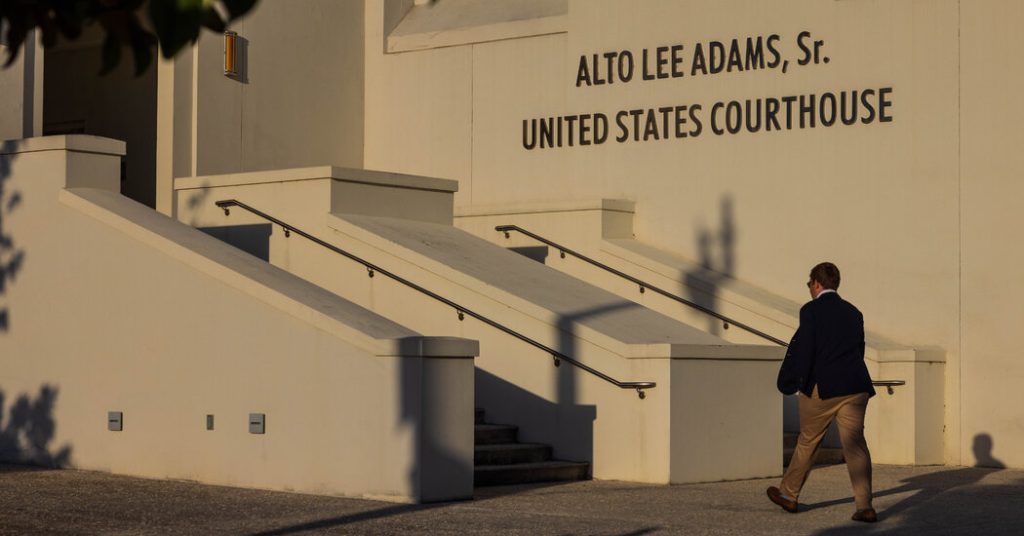A federal judge made a ruling on Monday that narrowed the classified documents case against former President Donald J. Trump, stating that prosecutors cannot charge him based on an incident involving a highly sensitive military map. The judge removed this incident from the indictment but allowed prosecutors the possibility of introducing evidence of it at trial. The incident occurred at a meeting at Mr. Trump’s golf course in Bedminster, N.J., where he allegedly showed the map to a representative of his political action committee. The map displayed information about a military operation and was presented to someone who did not have the necessary security clearance.
The focus of the allegations against Mr. Trump in the case revolve around his removal of nearly three dozen documents containing sensitive national security secrets from the White House. He is also accused of obstructing the government from retrieving these documents from his private club and residence in Florida, Mar-a-Lago. Another similar incident involving a classified battle plan shown to a group of people at Mr. Trump’s Bedminster property was left untouched in the indictment. Mr. Trump allegedly made remarks suggesting he could have declassified the plan as president, but no longer had that authority after leaving office.
Judge Cannon denied Mr. Trump’s lawyers’ request to dismiss the charges altogether, acknowledging the prosecutors’ decision to present a “speaking indictment” that describes events in vivid language. She agreed that much of the language in the indictment, including the incident involving the map, was legally unnecessary. The prosecutors argued that evidence of Mr. Trump’s recklessness handling classified materials was admissible under Rule 404(b) of federal criminal procedure, which allows for introducing “bad acts” committed by a defendant that are not part of the charges in a case.
In a recent motion filed just before midnight on Monday, Mr. Trump’s lawyers challenged the indictment, claiming that prosecutors failed to properly preserve the boxes of documents removed from Mar-a-Lago during an FBI search warrant execution. They alleged that the order of the documents inside the boxes was not maintained, noting that some boxes contained a mix of highly classified materials and routine items. The lawyers accused the prosecution team of violating Mr. Trump’s due process rights by allowing the order of the documents inside some boxes to be altered.
Prosecutors countered by stating that minor movements in the order of documents inside the boxes were due to the presence of small items like index cards and books that shift easily during handling. They also explained that an independent review conducted months before charges were filed may have affected the order of documents in some boxes. The review, initiated by Mr. Trump himself and ordered by Judge Cannon to identify documents protected by executive privilege, aimed to separate out any potentially protected materials. The ongoing legal battle surrounding the indictment against Mr. Trump continues to unfold as both prosecutors and defense attorneys present their arguments in court.


